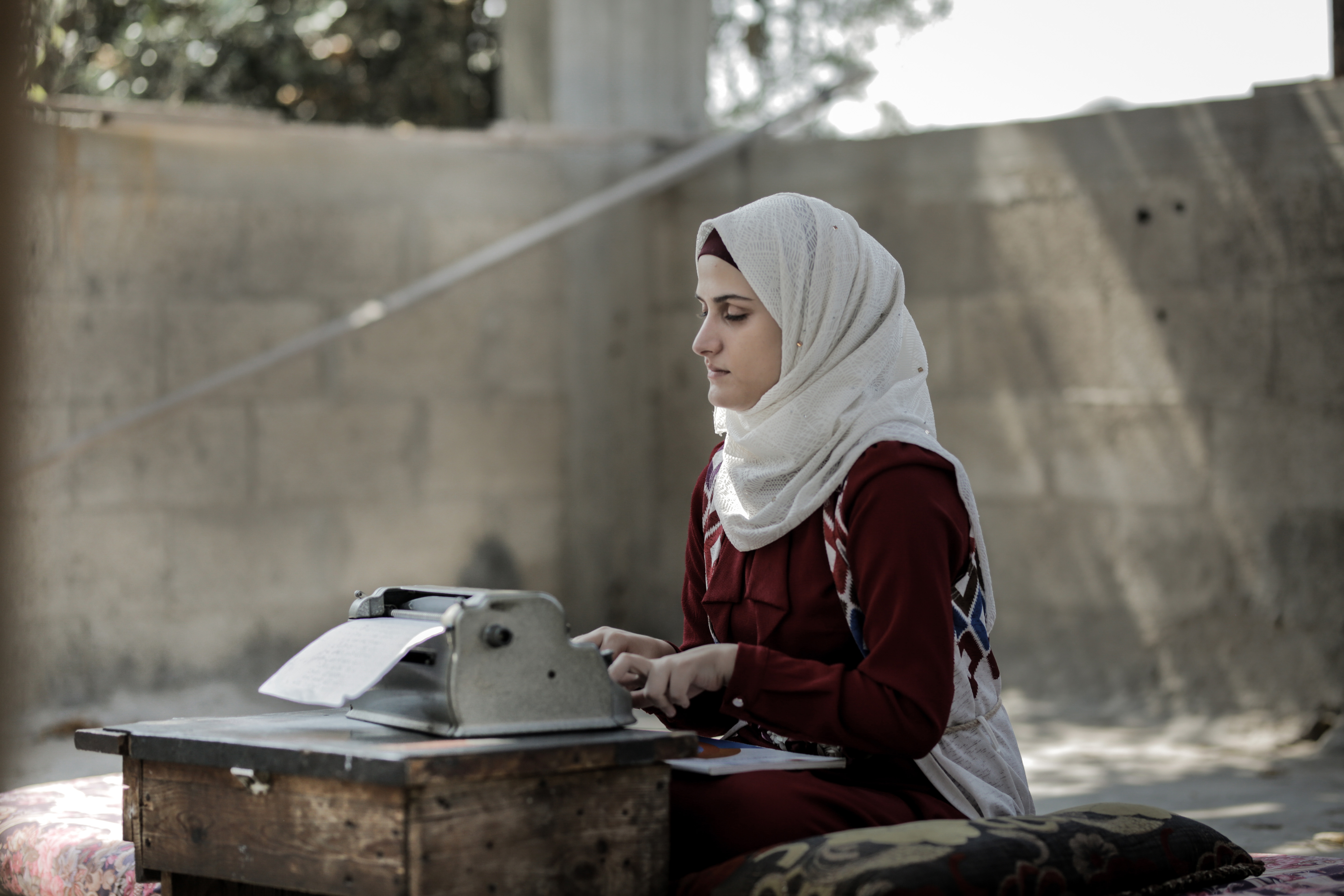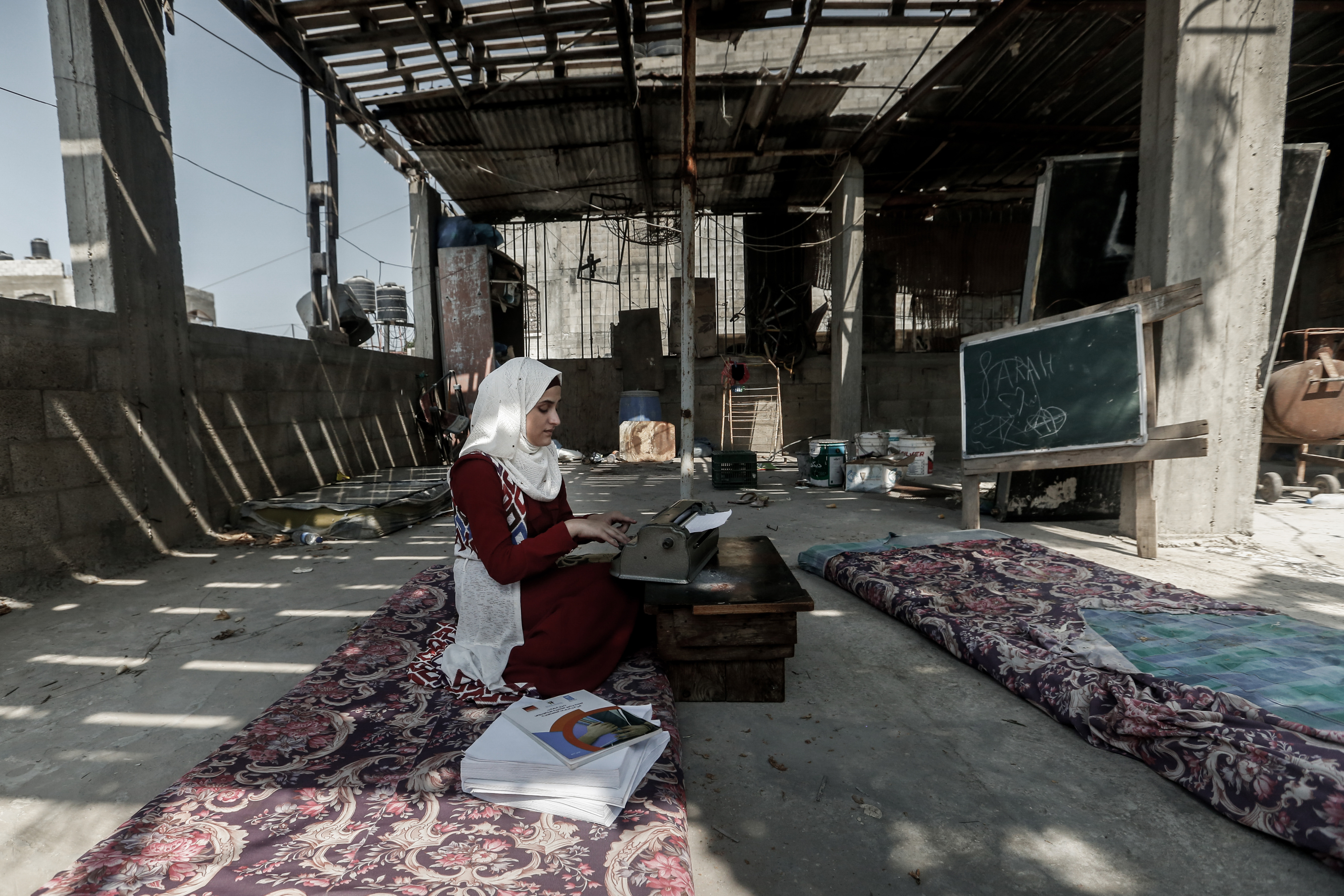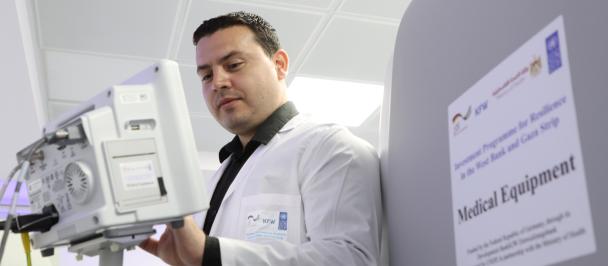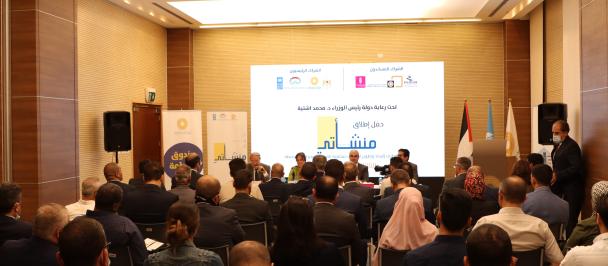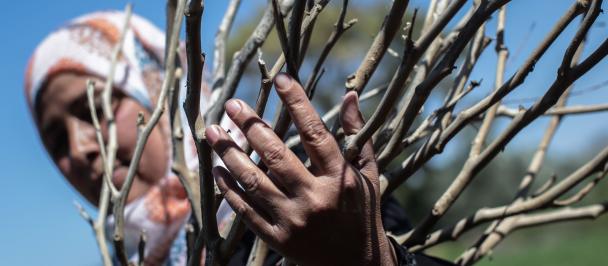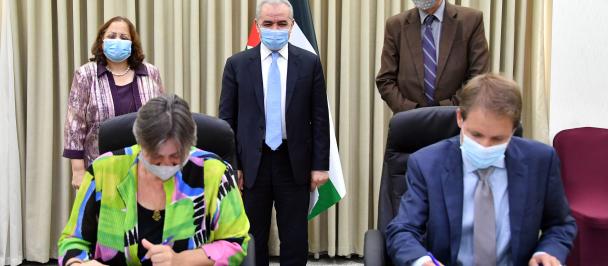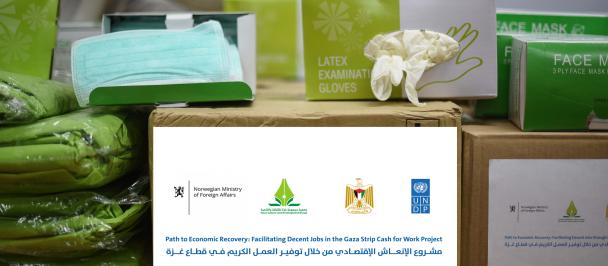Haneen determined to continue her education despite the challenges. © UNDP/PAPP - Ahmad Mashharawi
“E-learning is an opportunity rather than a challenge. As a visually impaired person, I have started to move away from Braille language and use new digital tools such as NVDA, the NonVisual Desktop Access, which is now my eyes to the world of knowledge,” said Haneen Sabbah, a 22-year-old from Jabalia camp in Gaza.
Haneen lives in one of the highest populated camps north of the Gaza Strip with her eight family members. She is a very determined young woman, studying English Literature at the Islamic University in Gaza.
“I graduated from high school with an honours degree and a 94% score. I wanted to follow my passion and beat the stereotype of the visually impaired studying Arabic, Islamic Studies or History in Gaza. I had a dream to work in Academia and serve my community, particularly youth, while working on development interventions. I wanted to go into a challenging field where I can show my skills. For me, the English Language is the window where I can see the external world, get to know more about other cultures, societies, people with different perspectives. I still dream of pursuing my Masters and PhD as soon as I complete my university studies,” Haneen explained.
Haneen started her last fourth year academic semester in 2020. But, as the COVID-19 pandemic spread around the world, Gaza was no different. Movement restrictions were applied and universities had to shut their doors.
“All of sudden, I felt that my journey was hampered,” Haneen points out. “I had to stay at home. An experience that is new to me, after four years of being hyperactive, challenging my advancement, especially as being the only visually impaired person in my college”. The University Haneen is enrolled in has a Braille language lab, but she had to pay for having the materials readable in Braille language. “I was able to continue my studies at university because of Al Fakhoora. The also covered the transfer of all my education materials to Braille. I could not have been able to afford the cost nor continue my education without Al Fakhoora’s support”.
Haneen studying at home during COVID-19 pandemic. © UNDP/PAPP - Ahmad Mashharawi
“With COVID-19, universities shifted to e-learning. For a moment, this seemed to be a challenge. I need to rely more on my computer. At that point, I was glad that I received special support in learning computer skills. Looking at the positive side of this, it was much more useful to have the lectures “recorded” so I can refer to and repeat as I wish. Careful listening is my strongest asset. If I need to explore further, I use YouTube”. Haneen adds “I am currently reading Novels and other study materials through NVDA; the NonVisual Desktop Access software. It is a challenging experience but I am trying to get used to it”.
The flagship Al Fakhoora Scholarship and Empowerment Programme is designed to offer talented young students in Gaza with learning opportunities that meet today’s global market challenges with quality and innovative education, and inspire a new generation of young people who are civic- minded, intellectually able, and professional to become community, business, and leaders of the future. The programme, which is worth over US$ 40 million, and targets more than 1000 youth and their families, is currently funded by the State of Qatar’s Al Fakhoora - A Programme of Education Above All Foundation.
“For the first time, I feel that I have an equal opportunity. During university, professors were showing slides, and I was getting peer support on the content. I feel more capable to explore at my own accelerated pace. I am more confident now to finish university with great academic success. At the same time, I am grateful for the additional support received by Al Fakhoora online services, particularly academic counselling, where I was able to discuss all my concerns. I admit this helped me to avoid having a negative perspective, and be more positive in my studies and life,” Haneen stated.
Since November 2019, Haneen volunteered with “Global Shapers”, a network of young people driving dialogue, action and change. About her experience, she says “Currently I am joining the efforts to develop a social media campaign to make people aware of the risks of COVID-19 and how to protect themselves. We use WhatsApp, Zoom and other social media platforms to interact. I feel, giving back to my community after the beautiful learning experience with Al Fakhoora, and the skills that I have acquired are truly enabling me to be an active person, helping and supporting others”.
Haneen concludes “While at home, I am also working to develop my e-work and freelancing skills to use in my future career. While I also develop my skills working with youth and awareness campaigns and will pursue working with youth organizations in the future”.
In its Human Development Report, UNDP has warned that the digital divide is re-opening gaps that had closed in the education sector taking us back to a time before the Sustainable Development Goals or even the Millennium Development Goals, and threatening the hard work of the past 30 years. As part of their response to COVID-19, Education Above All (EAA) Foundation’s programme Al Fakhoora, with the support of its strategic partner Qatar Fund for Development, and in partnership with UNDP’s Programme of Assistance to the Palestinian People successfully conducted the first completely student-led virtual conference, “Rethinking Higher Education: A New Way of Learning to Become” The aim of the conference was to address key aspects of Higher Education that have been affected by COVID-19 in the MENA region, specifically related to marginalised youth.

 Locations
Locations